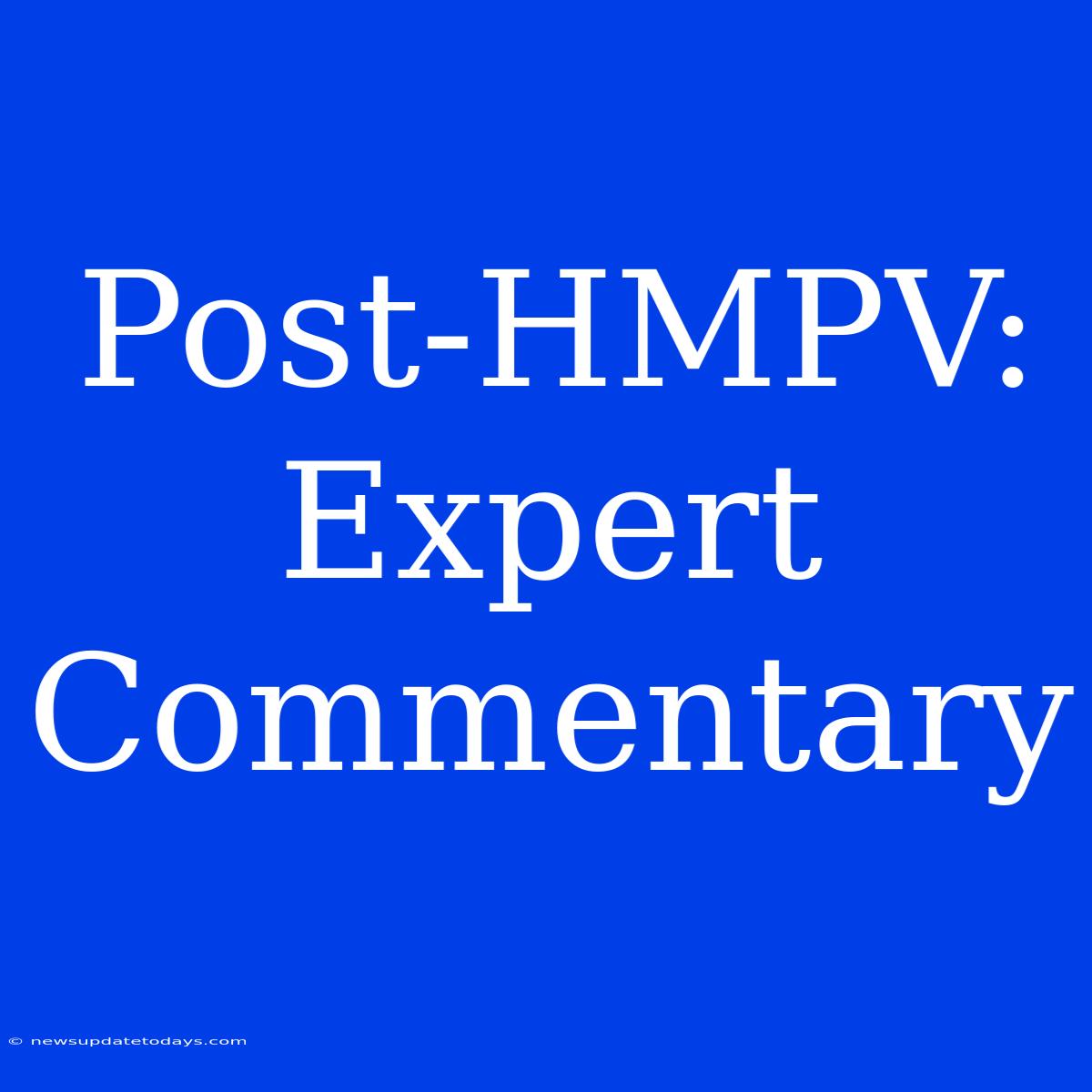Post-HMPV: Expert Commentary: Understanding Long-Term Effects & Management
Human metapneumovirus (HMPV) infection, particularly in young children and the elderly, can lead to significant respiratory illness. While acute symptoms often resolve, growing evidence suggests the possibility of long-term effects, requiring a deeper understanding for effective management. This expert commentary explores the post-HMPV landscape, examining potential lingering complications and offering insights into best practices.
Potential Long-Term Effects of HMPV
While HMPV is typically associated with acute respiratory infections like bronchiolitis and pneumonia, research increasingly highlights the potential for long-term consequences. These can manifest in various ways:
1. Wheezing and Recurrent Respiratory Infections: Many children who experience HMPV infection may develop persistent wheezing and an increased susceptibility to recurrent respiratory infections, potentially indicating the development of asthma or other chronic respiratory conditions. Further research is crucial to definitively establish the causal link and prevalence of this long-term effect.
2. Impaired Lung Function: Studies suggest that severe HMPV infections, especially in infants, could lead to measurable impairments in lung function even months after the initial infection subsides. Longitudinal studies tracking lung function are needed to fully understand the extent and duration of these impairments.
3. Cognitive Development: While less established, some preliminary research explores a possible association between severe HMPV infection in infancy and subtle delays in cognitive development. This area requires significantly more investigation to determine the strength of any correlation.
4. Impact on Quality of Life: The chronic symptoms and recurrent illnesses associated with post-HMPV conditions can negatively affect the quality of life for both children and their families, impacting daily activities and overall well-being. Comprehensive assessments of quality of life are vital for understanding the full impact of post-HMPV complications.
Management Strategies and Future Directions
Managing the potential long-term effects of HMPV necessitates a multi-faceted approach:
-
Early Diagnosis and Treatment: Early detection and appropriate treatment of acute HMPV infections are crucial to minimize the severity of the illness and potentially reduce the risk of long-term complications.
-
Respiratory Monitoring: Regular monitoring of respiratory function, especially in children with a history of severe HMPV infection, is vital to identify any persistent abnormalities.
-
Asthma Management: For children who develop wheezing or recurrent respiratory infections after HMPV, appropriate asthma management strategies may be necessary.
-
Supportive Care: Supportive care plays a vital role in managing post-HMPV symptoms, including adequate hydration, rest, and medication for symptom relief.
-
Further Research: More research is urgently needed to clarify the long-term effects of HMPV infection, including the development of reliable biomarkers to predict risk and identify individuals requiring closer monitoring. This includes longitudinal studies examining lung function, cognitive development, and quality of life in children following HMPV infection.
In conclusion, the post-HMPV landscape is complex and requires further investigation. A focus on early diagnosis, comprehensive monitoring, and appropriate management strategies, combined with robust research efforts, is essential to improve the long-term outcomes for individuals affected by HMPV. Understanding the long-term effects will lead to better prevention and management strategies, improving the health and well-being of vulnerable populations.

